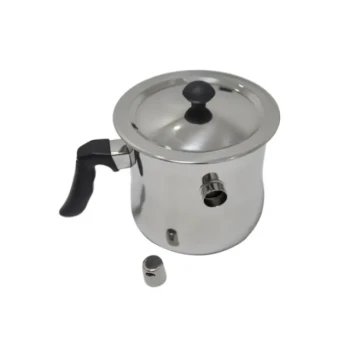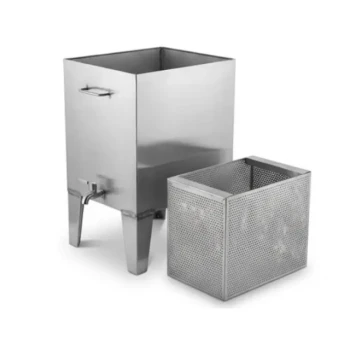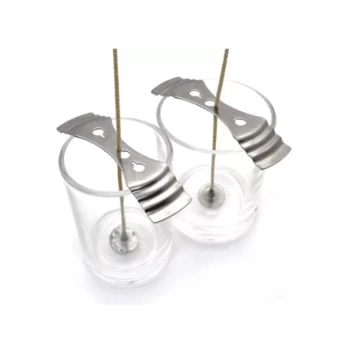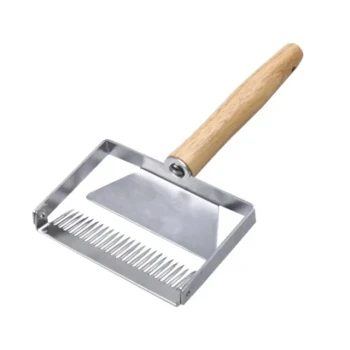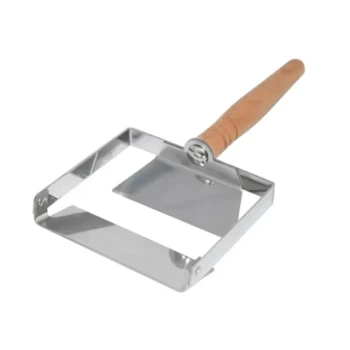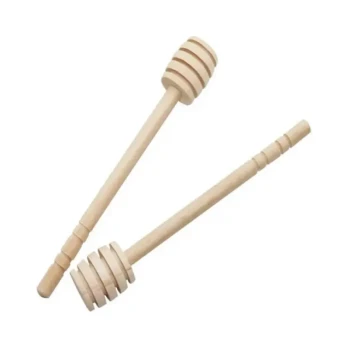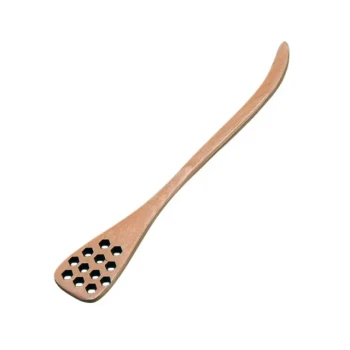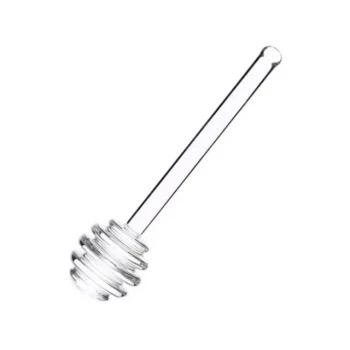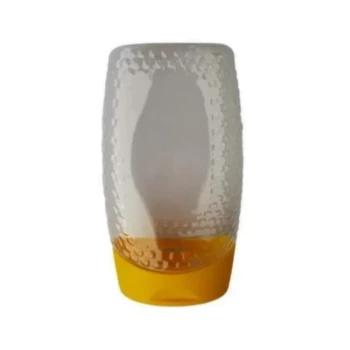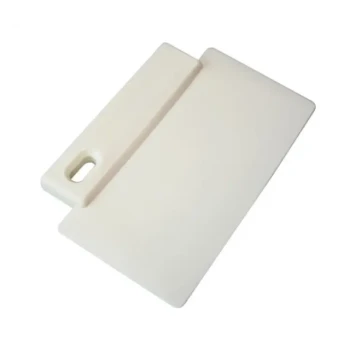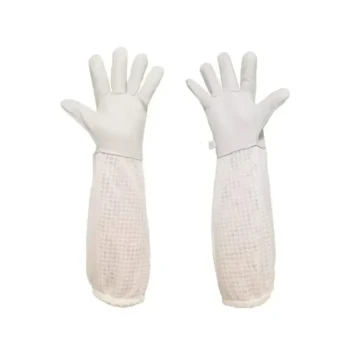Beyond the honey, a modern beehive is a source of multiple valuable and distinct products. While honey is the most well-known, honey bees also produce beeswax, propolis, royal jelly, bee pollen, and even bee venom, each with unique properties and applications.
A beehive is not just a honey factory; it's a complex biological system producing a diverse range of resources. Understanding each product is key to appreciating the full value of beekeeping, whether for hobby or commercial purposes.
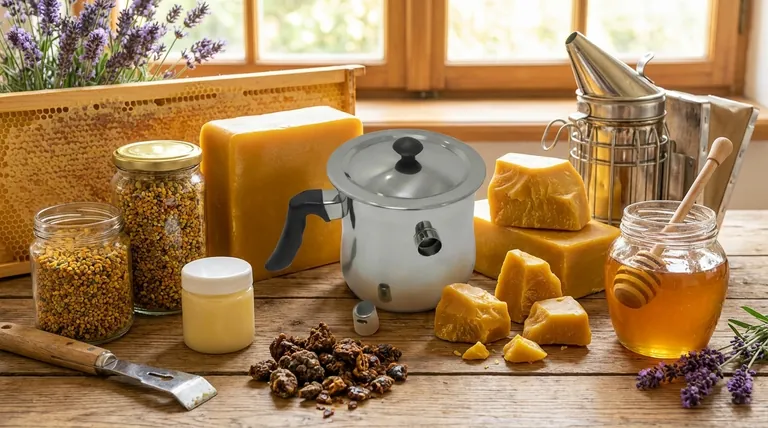
The Structural Foundation: Beeswax
What is Beeswax?
Beeswax is a natural wax produced by worker bees from special glands on their abdomens. The bees mold it into the iconic hexagonal cells that form the honeycomb structure.
How is it Harvested?
Beeswax is a primary byproduct of honey extraction. Beekeepers collect it by slicing off the wax "cappings" that bees use to seal the honey-filled cells. It is then typically melted and filtered to remove impurities.
Primary Uses
This incredibly versatile product is valued in many industries. It's commonly used to make candles, cosmetics like lip balms and lotions, polishes, and reusable, sustainable food wraps.
The Hive's Immune System: Propolis
What is Propolis?
Often called "bee glue," propolis is a resinous, sticky substance that bees produce by mixing their saliva and beeswax with sap collected from tree buds and other botanical sources.
Its Role in the Hive
Bees use propolis as a sealant for unwanted gaps and cracks in the hive. More importantly, its powerful antimicrobial properties help defend the colony against pathogens and keep the hive sterile.
Human Applications
Humans harvest propolis for its purported medicinal benefits. It is widely sold in health supplements, tinctures, and throat sprays for its anti-inflammatory and antibacterial properties.
The Superfood Products: Pollen and Royal Jelly
Bee Pollen: The Protein Source
Bee pollen consists of pollen packed by worker bees into granules, mixed with nectar. It serves as the primary source of protein, vitamins, and minerals for the developing bee larvae. Beekeepers use special traps at the hive entrance to collect it.
Royal Jelly: The Queen's Diet
Royal jelly is a protein-rich, milky-white secretion from the glands of worker bees. While all larvae are fed royal jelly for the first few days, only the queen bee is fed this substance exclusively her entire life, contributing to her size and longevity.
Value and Collection
Both pollen and royal jelly are marketed as high-value nutritional supplements. However, harvesting them requires specialized equipment and techniques that are more invasive than collecting honey or beeswax.
Understanding the Trade-offs
Not All Products are Created Equal
For most beekeepers, honey and beeswax are the most accessible products. They are natural results of managing a healthy hive and the honey harvesting process.
Specialized Equipment is Required
Harvesting propolis, pollen, royal jelly, or bee venom requires a dedicated effort and specific equipment, such as pollen traps or venom collector frames. This represents an additional investment in time and money.
Impact on the Hive
It is critical to understand that these products are essential resources for the bees themselves. Over-harvesting pollen can starve the brood, and improper collection of other substances can put significant stress on the colony's health and productivity.
Matching Products to Your Beekeeping Goals
The products you choose to focus on should align directly with your goals and available resources.
- If your primary focus is hobbyist beekeeping: Concentrate on honey and beeswax, as they are the natural byproducts of standard hive management.
- If your primary focus is a small-scale, value-added business: Consider adding propolis and bee pollen, which can be processed into high-margin products like health tinctures and supplements.
- If your primary focus is a highly specialized commercial operation: Harvesting royal jelly and bee venom can be lucrative but demands significant expertise and a major investment in equipment and labor.
By seeing the hive as a source of multiple diverse resources, you can develop a more holistic and sustainable approach to beekeeping.
Summary Table:
| Product | Primary Use | Harvesting Method |
|---|---|---|
| Beeswax | Candles, Cosmetics, Polishes | Byproduct of honey extraction |
| Propolis | Health Supplements, Tinctures | Scraped from hive surfaces |
| Bee Pollen | Nutritional Supplements | Collected via pollen traps |
| Royal Jelly | High-Value Health Products | Requires specialized, invasive collection |
| Bee Venom | Medical Research, Therapeutics | Collected with specialized equipment |
Ready to maximize your apiary's potential?
Whether you're a hobbyist or a commercial operation, having the right equipment is essential for harvesting honey, beeswax, and other valuable bee products safely and efficiently.
HONESTBEE supplies durable, high-quality beekeeping supplies and equipment to commercial apiaries and beekeeping equipment distributors through our wholesale-focused operations. We help you protect your investment and increase your yield.
Contact our expert team today to discuss your specific needs and get a quote on the equipment that will help your business thrive.
Visual Guide
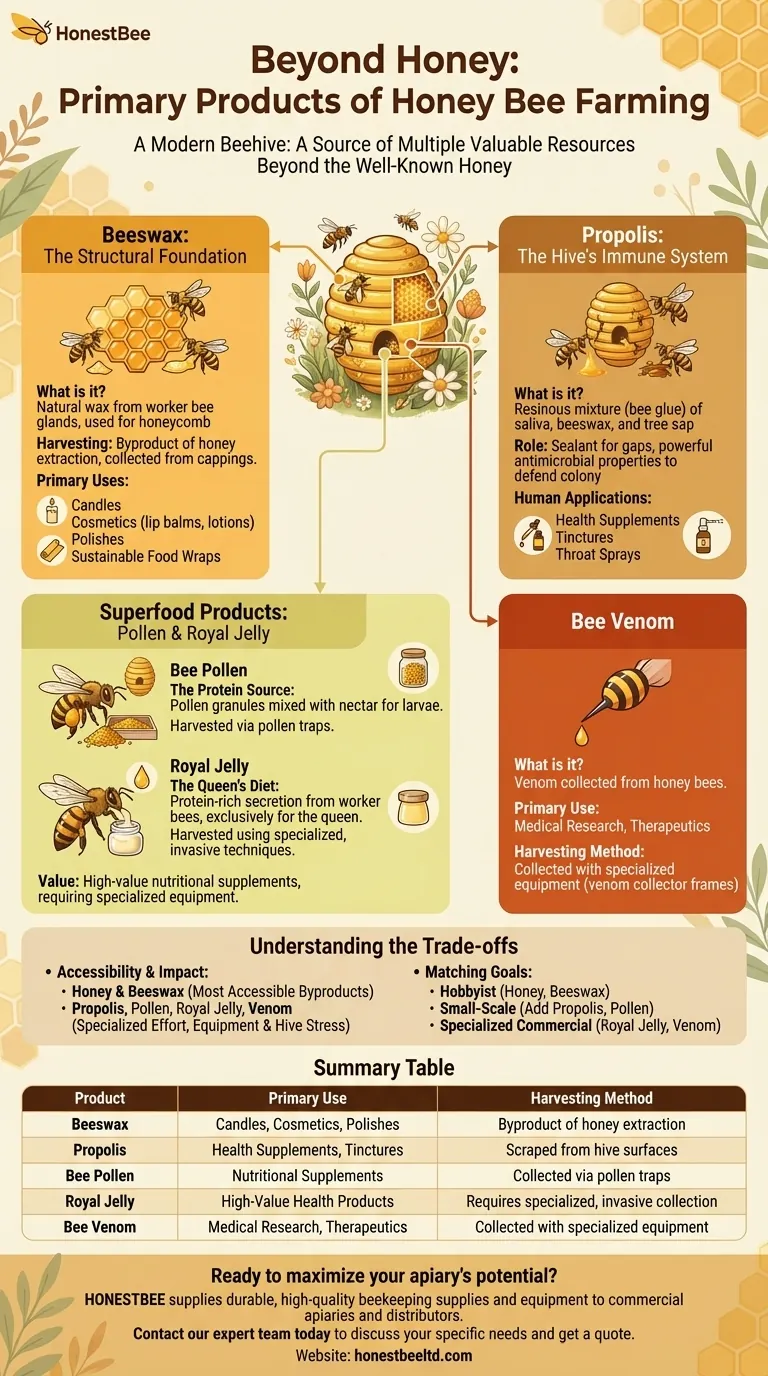
Related Products
- Beeswax Melter for Candle Making Honey Bee Wax Melter
- Electric Flatting and Embossing Machine with Tray for Beekeeping
- Electric Beeswax Foundation Machine With Operating Tray and Wax Foundation Roller
- Steam Beeswax Melter Wax Warmer for Wax Processing
- Professional Frame Preparation: The HONESTBEE Electric Wire Embedder
People Also Ask
- What role do bee shelters and apiary layouts play in performance testing? Ensure Data Accuracy with Proper Design
- What are the five essential items a new beekeeper needs before their honey bees arrive? Your Essential Starter Guide
- What is the primary function of controlled mating stations? Ensuring Genetic Purity in Honeybee Breeding
- Does original honey settle down? Uncover the Truth About Honey Purity
- What role does a dual-core expandable microcontroller play in a beehive data acquisition system? Boost Monitoring Tech
- How does the introduction of honey-themed cultural merchandise and agriculture fairs support brand building?
- Why is Mud Mortar used for crack filling in Log Hives? Boost Productivity & Defend Against Parasites
- What scientific insights are gained from observing drone bee cell cap pores? Unveiling Hive Communication Mechanisms
